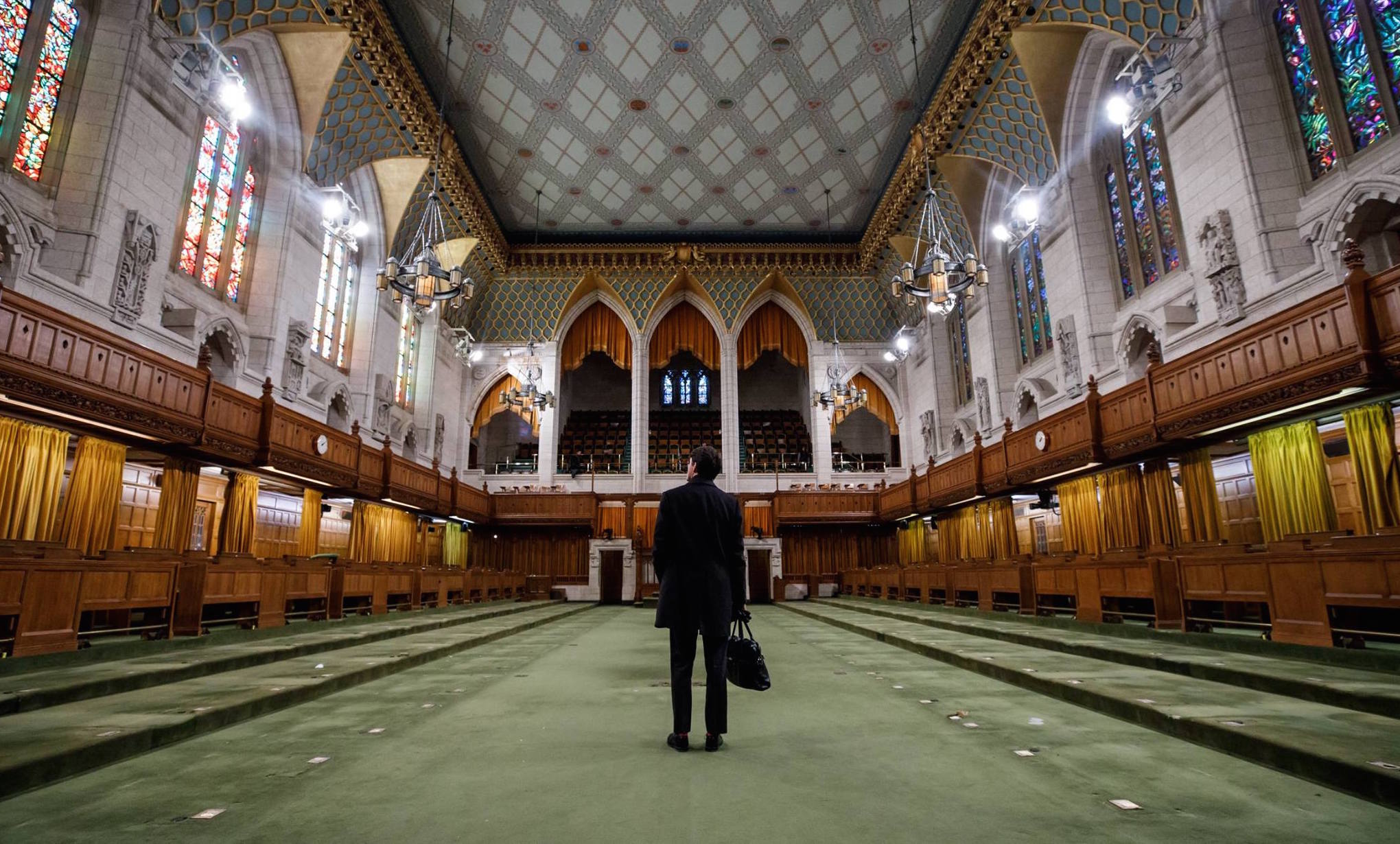Justin Trudeau spoke to the press last week about the fiasco that has enveloped his government following the demotion, then resignation, of former justice minister Jody Wilson-Raybould from cabinet.
I have “learned some lessons,” said the prime minister. He plans to seek outside advice on clarifying relations between political staff and ministers, the concentration of power in his office, and the role that lobbying plays in policy development.
When Brian Mulroney formed his majority government in 1984, he created a highly paid political “chief of staff” position for each minister, someone to give partisan policy advice, short-circuiting the public service.
Mulroney did not have much time for public servants. His campaign promise was to hand out “pink slips and running shoes” to federal government employees.
Every government since Mulroney has used political staff in big roles. Deputy ministers are second-guessed by staffers looking for partisan advantage.
While senior public officials serve the government of the day, political staff serve the minister, and their loyalty is to the party first.
It would be wise of Trudeau to move away from the Mulroney style of partisan government. Political staff should be focused on party business.
Policy development needs to be done with public servants, experts, and the public, not directed from the prime minister’s office (PMO) by political staff.
Lobbyists figured out some time ago they should be targeting political staff. The prominence staffers have had in Ottawa has attracted attention from all kinds of industries looking for favourable treatment.
A key Trudeau aide, Gerald Butts (who resigned in the fallout over the Wilson-Raybould departure) spent hours being lobbied by oil and gas officials, though the Liberals were elected fighting climate change.
Forcing lobbyists to operate openly in the public sphere is a better way to go for any government. Inviting participation in parliamentary committee hearings beats letting political staff interact with the rich and powerful.
The Ottawa parliamentary committee system does run up against excessive partisanship; but it also allows for MPs to become knowledgeable on subjects that affect the daily lives of Canadians. Calling on experts, video conferencing, and online streaming, are all techniques that can build public participation in policy development.
Industries defending pipeline expansion or use of chemical fertilizers should have to make their case in open sessions, also attended by critics. Giving voice and access to critical voices adjusts the balance of political forces at play away from one that favours corporations, as in the lobbying scenario.
In Canada the centralization of power in the hands of the prime minister dates from Pierre Elliott Trudeau and the election of 1968. Journalist Walter Stewart wrote about “the super group” around Pierre Trudeau that was determined to wrestle influence away from the senior public servants who, behind the scenes, made cabinet government work.
Wartime preparation from 1939 to 1945 and postwar planning undertaken in the early 1940s demanded more knowledge, technical skills, and social science than any cabinet could muster. It fell to public servants to take the lead.
Working together to build inter-departmental consensus, senior public servants communicated their agreed proposals to cabinet ministers, whose job was mainly to sell them to the country.
This was the system Pierre Trudeau discovered when he worked at the Privy Council office after the war. It was still operating when he came to Parliament in 1965. Before he became prime minister, Trudeau had concluded it gave elected representatives short shrift, weakening electoral democracy.
For Pierre Trudeau the elected representatives of the people should do the thinking and the deciding, not the appointed public servants.
In implanting his ideas about proceeding democratically, Trudeau turned to his own thinkers.
Advisers Jim Davey and Marc Lalonde came up with the system of cabinet committees where ministers would hash out what to do, with senior officials providing background and options, and not neatly packaged policies to be adopted.
The result was to give more power to the centre to make the agenda, choose priorities, and frame discussions. Prime ministerial government was born and remains in place to this day.
Cabinet government — where ministers take responsibility for their portfolios — has been correspondingly downgraded.
Pierre Trudeau thought the Liberal Party could be a privileged vehicle for policy development.
With his longtime associate Gérard Pelletier, Trudeau devised a system of funding social activists so as to bring new voices into public debate.
When those voices, specifically feminist ones, became too critical, their funding was withdrawn by Mulroney and then Chrétien. Stephen Harper pulled the plug on any remaining support for social activists.
As it turned out, prime ministerial government and neoliberalism worked well together, from the time of anti-inflation austerity in the early 1980s, through corporate trade deals, to moving from a social welfare regime to a security state after 2001.
Despite his campaign promises, Justin Trudeau has been unable to abandon centralized power. His chosen style of governance is through emphasizing public relations; it is wearing thin, not just in Canada, but in France, and elsewhere.
Governments today need to engage with the public on issues in a more meaningful fashion than through talking points and message boxes.
Bringing the lobbyists out of the back rooms, giving public servants more responsibility for policy development in the various departments of government, and keeping political staffers from substituting themselves for ministers would be a good start to improving democratic government in Canada.
Duncan Cameron is president emeritus of rabble.ca and writes a weekly column on politics and current affairs.
Photo: Justin Trudeau/Facebook
Help make rabble sustainable. Please consider supporting our work with a monthly donation. Support rabble.ca today for as little as $1 per month!





